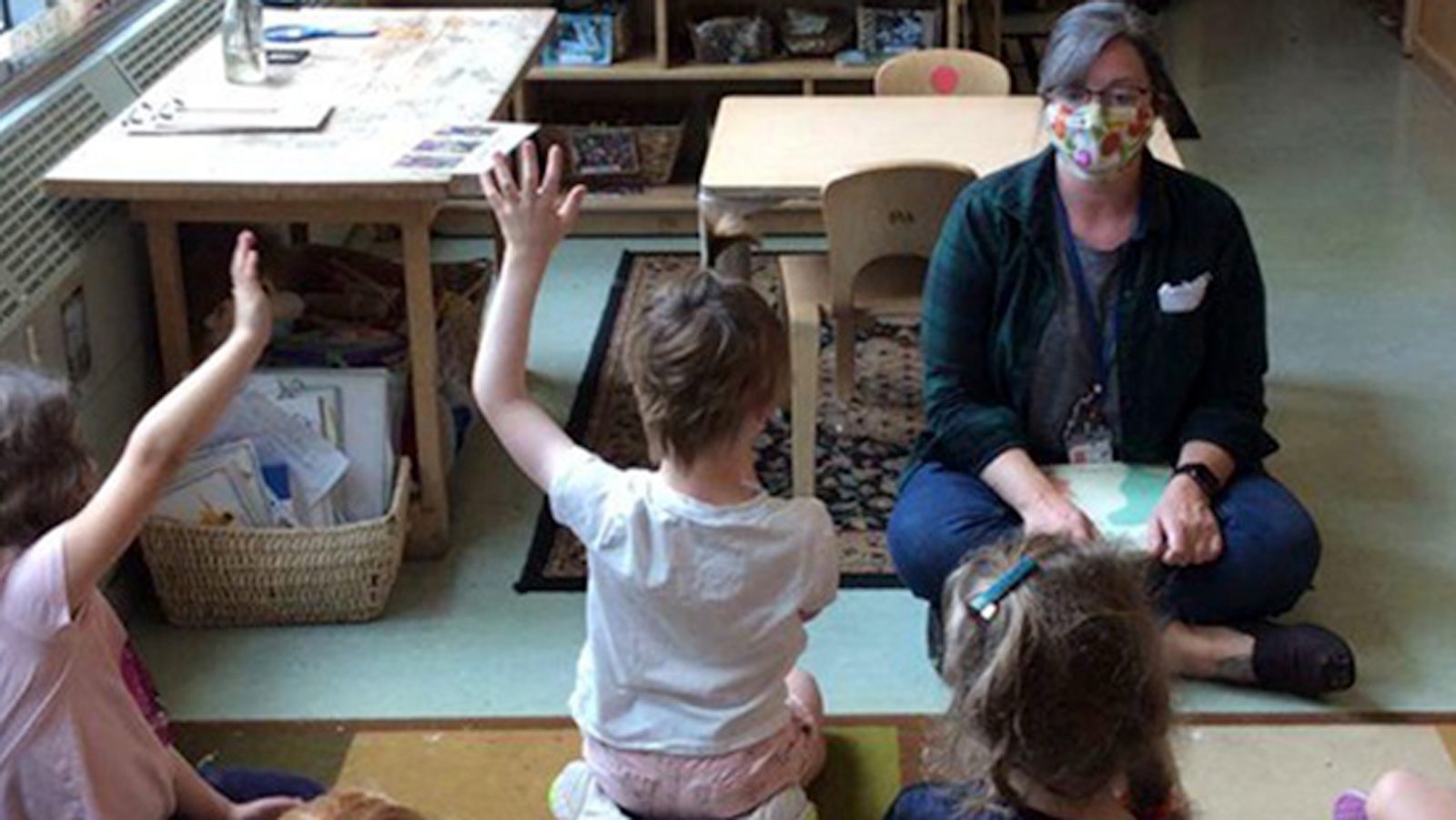The early childhood workforce is on the front lines of parent support.
We offer infant and early childhood mental health training for clinical and non-clinical professionals.

When parents are under severe stress—whether due to financial difficulties, lack of support systems, or the juggling act of work and caregiving—their ability to provide a nurturing and responsive environment diminishes. This, in turn, can have a detrimental impact on infant and early childhood mental health (IECMH). The effects of toxic stress during the prenatal window and early childhood can disrupt healthy brain development, leading to long-term issues with emotional regulation, social relationships, and cognitive development.
Policy changes, community programs and individual actions can help alleviate parental stress. Below, we’ve outlined key early childhood policy solutions that could make a big impact.
The early childhood workforce is on the front lines of parent support.
We offer infant and early childhood mental health training for clinical and non-clinical professionals.

Since 2018, Rahil has overseen the dramatic growth of HealthySteps to over 260 sites across the country, reaching approximately 405,000 children and families as of 2023.
We know the mental health of parents impacts the mental health of children. Pediatricians often have only roughly 15 minutes to spend with families during the visit. We need to better integrate resources to support child development and family mental health into pediatric primary care.
Rahil briggs, psyd, national director of healthysteps
66% of parents reported feeling consumed by worries regarding money, compared to 39% of other adults. (American Psychological Association, 2023)
The expanded Child Tax Credit (CTC) has been a lifeline for many families, providing crucial financial support that reduces economic stress—a primary driver of parental anxiety and depression. With this additional income, parents are better equipped to meet their children’s needs, from basic necessities to enriching experiences that foster development. Financial stability creates a more secure home environment, which is essential for the emotional and mental health of both parents and children.
In the last decade, child care prices have grown by approximately 26% in the U.S.. (The White House, 2023)
Affordable, high-quality child care is not just a convenience—it is a necessity for families, especially those with young children. Across the country, parents may face tough choices, such as leaving their children in suboptimal care settings or leaving the workforce, both of which increase family stress and reduce economic security. Quality, affordable child care ensures that children receive the early learning experiences they need to thrive while allowing parents the peace of mind to work or pursue education.
Caregivers who care for both children and aging family members report more significant financial and emotional difficulties than caregivers who do not. (Journal of the American Geriatrics Society, 2023)
Paid family and medical leave allows employees to attend to long-term family or medical needs. This includes caring for oneself, a new or adopted child, or an ill family member. Paid sick time would allow for employees to take time for short-term health needs or preventive care for themselves or family members.
Mental health conditions disproportionately affect certain groups of parents, reflecting broader social determinants of health. Circumstances like family or community violence, poverty, and racism and discrimination, among other circumstances, can increase the risk
for mental health conditions. (Pew Research Center, 2022)
Screening parents and caregivers for mental health conditions, increasing insurance coverage and ease of access to mental health care enhances the overall health and development of young children by creating a more supportive and stable family environment. Addressing parental mental health through early identification and access to services is essential for breaking this cycle and ensuring that parents are equipped to nurture their children’s wellbeing.
Young children also need more mental health support, so expanding infant and early childhood mental health services and the IECMH workforce must be a critical part of policy solutions.
Equipping parents and caregivers with resources to address parental stressors and connect to crucial support services are critical interventions.
When parents receive the necessary support, such as stable housing, access to healthcare and appropriate mental health treatments, they are better able to care for themselves and their children.
In situations of acute family disruption, such as involvement with child welfare services, the stressors and challenges experienced by parents, caregivers, and families can be exacerbated. Safe Babies, a program of ZERO TO THREE, works to align and integrate early childhood systems to avoid gaps, making it easier for parents to avoid unnecessary barriers or delays in receiving equitable and culturally appropriate services.
We must increase access for HealthySteps, Safe Babies and other programs that meet parents where they are with the support that they want and deserve.
The time to act is now.
With the Surgeon General’s call to action, there is a unique opportunity to push for these changes and build a society that truly supports every family. Our children’s futures depend on the choices we make today.

Miriam began her career in early childhood as a mental health consultant in Head Start programs in Portland, Oregon and was the former Chief Policy Officer for ZERO TO THREE. As Vice President for Impact at the W.K. Kellogg Foundation, she works to create sustainable impact for families.
Our nation is at a crossroads of opportunity and possibility. The Surgeon General’s advisory makes it clear that families need more support, including strong policies to address the needs of babies and their families. The time to act is now!
Miriam Calderón

Early childhood policies such as the expanded Child Tax Credit (CTC), affordable child care, and paid family leave are essential tools in creating a stable, nurturing environment where families can thrive. By reducing the pressures on parents, we can help ensure all children have the opportunity to grow up in supportive environments that promote their mental and emotional development from the very start.

